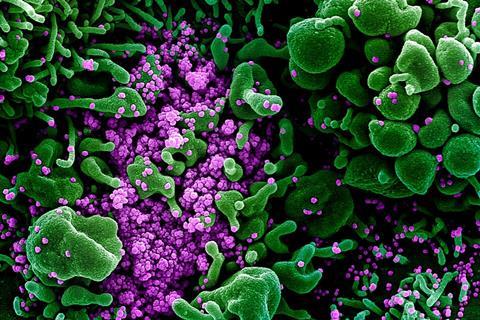A new study finds that C-reactive protein (CRP) >41.8 mg/L, interstitial lung disease (ILD) as primary disease, and combined pulmonary fungal infection are high-risk factors for developing severe disease in lung transplant recipients (LTRs) with coronavirus disease 2019 (COVID-19) caused by the Omicron variant. CD4+ T lymphocyte count <404 cells/µL may predict mortality risk.

It is known that solid organ transplant recipients who contracted severe acute respiratory syndrome coronavirus-2 (SARS-CoV-2) are susceptible to severe disease mainly due to immunosuppressive treatment.
READ MORE: Regular vaccine boosts may help people who are immunocompromised fight Covid-19
READ MORE: Immune cells prevent lung healing after viral infection
Although recent reports have highlighted reduced morbidity and mortality associated with the Omicron variant, its impact on LTRs remains substantial. However, a limited number of studies on LTRs have been reported, especially from Chinese experience.
In a new study, published in Journal of Thoracic Disease, scientists at the Center of Respiratory Medicine, China-Japan Friendship Hospital in Beijing, showed that LTRs displayed an increased vulnerability to combined lung bacterial or fungal infections following Omicron infection. CRP >41.8 mg/L, ILD as primary disease, and combined pulmonary fungal infection are recognized as high-risk factors for developing severe disease after Omicron infection. CD4+ T lymphocyte count <404 cells/µL may predict mortality risk.
Next steps
Although COVID-19 is no longer classified as a Public Health Emergency of International Concern by the World Health Organization, it is still mutating and causing death, especially in immunocompromised people, the authors said.
“We emphasize the importance for dynamic surveillance and timely intervention measures in the care of LTRs affected by SARS-CoV-2, in light of the challenges posed by the Omicron variant or other variants in the future,” they warned.







No comments yet